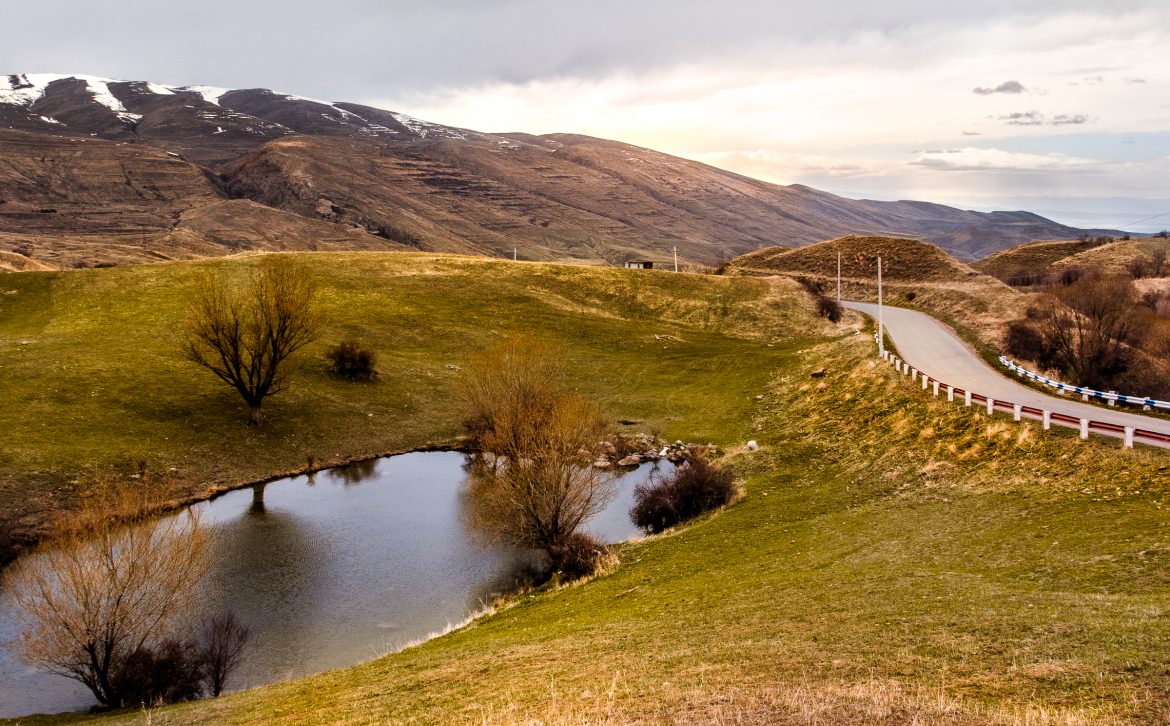Overall goals of the project were an efficient use and integrated management of water resources as well as sustainable development of communities.
The main objectives of the project were to contribute to the increase of water productivity, efficiency and quality through activate the process of citizen participation, and to foster behavior change to enhance responsible management of water resources, and reduce the rate of ground water extraction in the Ararat Valley.
For the purpose of the Project, 12 communities were selected out of the list of 32 communities of the Ararat Valley (included in Ararat and Armavir regions) that used to have access to flowing water but now pump it from the ground which is energy intensive.
The selection was conducted considering the vulnerability of the communities in terms of scarcity of water resources, past participatory practices, willingness and commitment to cooperate with the program and participate in the program activities.
In the frame of the project CWP has been responsible for implementation the following activities and tasks:
Development of public oversight mechanisms with usage of several exciting software and tools.
- Particularly via phone survey instrument CWP has revealed main issues in water sector, which worried communities’ residents. Computer-based automatic telephone survey instrument was developed and provided to the community administration with the purpose to know public opinion to water supply and related issues.
- Development of transparency water portal and installation of it on the Vedi community website (pilot community), provide to the community residents deeper information on water-related responsible state authorities, also private organizations Water portal will provide additional opportunity to the public to raise their concerns and complaints, as well as address them directly to those organizations. It is new mechanism established between the public and state authorities, private operators and independent public sector regulatory.
- Simplified online platform was installed in RA Ministry of Ecology, Water Resources Management Agency website that will enable the community residents to apply for the water use permits without visiting the Ministry’s employees at the same time ensuring the smooth and transparent process for water use permit issuance.
- Public monitoring on infrastructure project implementation process was established in 5 communities, where drinking and irrigation water infrastructure projects were implemented. Special explanation trainings were organized for community residents, particularly people impacted by project implementation. Public oversight mechanism results via filled in questionnaire and photo logs were collected during whole construction and operation period. The first time in the frame of IFIs implemented projects involvement the public in monitoring of construction works in their communities were active mentored by project staff.
All those mechanisms have been considered as an Open Government Partnership tools, when people come together in dialogue and work to co-create and implement reforms that will bring governments closer to the people and their problem solving.



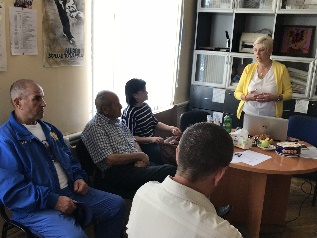
- In order toenhance the level of public awareness and participation (particularly by the youth and women) in the preservation and monitoring of water resources in their communities, the project team conducted water monitoring educational workshops and trainings also field works for partner schools and active members, including youth, on the topics of “Water physical-chemical monitoring”, “Water and health” and “Drinking water disinfection methods”.
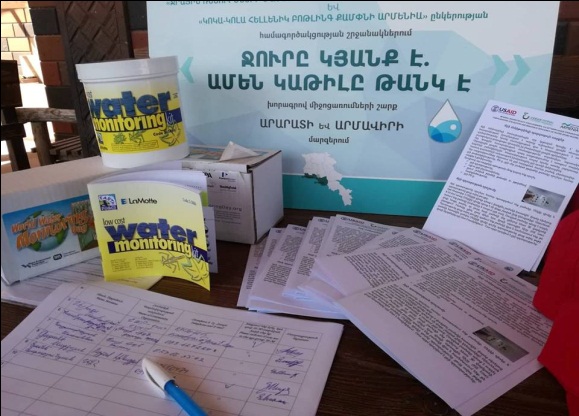
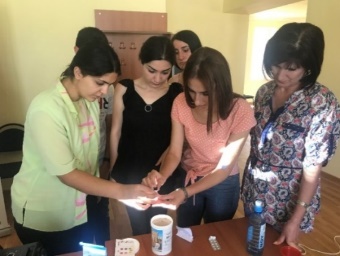
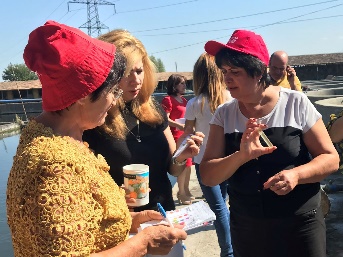
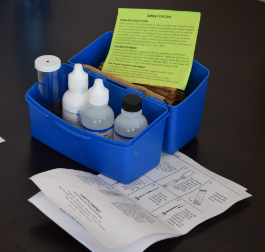
Participatory budgeting and social audit activities
During the 1st and 2nd years of the project, PURE Water introduced the participatory budgeting and social audit mechanisms in the target communities, to conduct public monitoring of irrigation and drinking water quality. While the goal of the participatory budgeting activities was to encourage local self-government and citizenry to participate in the decision-making process related to expenses for drinking and irrigation water supply, water infrastructure reconstruction. The social audit activities aimed at monitoring and auditing the contributions from the target communities' budget in the infrastructure projects implemented within the PURE Water Project in order to assess their qualitative, quantitative, and financial indicators. In addition, the Project team implemented the social audit of the Armavir Water Users Association/WUA activities and the budget aimed to discover the effectiveness of water usage , and at making WUA activities transparent and participatory for water users.
Along with the implementation of awareness campaigns, the Project provided two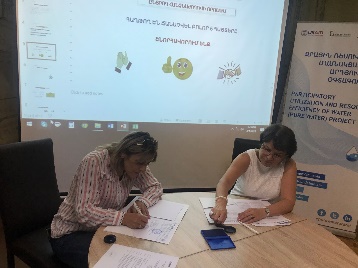 types of small sub-grants for implementation of monitoring and advocacy Projects. The aim of the former was to monitor water resources participatory and efficient management/use in order to improve the availability, accessibility, quality of the drinking and irrigation water, as well as to ensure participatory and efficient management of groundwater resources in the PURE-Water Project partner communities. Five CSOs and one community received the monitoring grants. Their projects addressed the variety of issues (water use permits for deep wells and their exploitation, drainage water quantity and quality, water users’ satisfaction of both drinking and irrigation water supply service, quality of drinking water supplied in cisterns, as well as quality of water stored in wells) totally covering 8 out of 12 partner communities.
types of small sub-grants for implementation of monitoring and advocacy Projects. The aim of the former was to monitor water resources participatory and efficient management/use in order to improve the availability, accessibility, quality of the drinking and irrigation water, as well as to ensure participatory and efficient management of groundwater resources in the PURE-Water Project partner communities. Five CSOs and one community received the monitoring grants. Their projects addressed the variety of issues (water use permits for deep wells and their exploitation, drainage water quantity and quality, water users’ satisfaction of both drinking and irrigation water supply service, quality of drinking water supplied in cisterns, as well as quality of water stored in wells) totally covering 8 out of 12 partner communities.
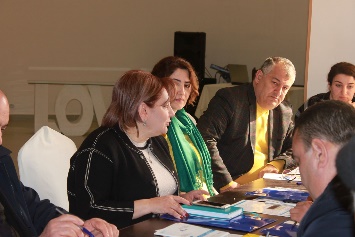
- While the aim of the monitoring projects was to monitor and indicate the problems facing the communities, the goal of the advocacy projects was to promote the already existent water problems and policy gaps at the national level. Among the issues raised were the restoration of the right to water through lobbying those problems in the respective state agencies, enhancement of the efficiency of the WUAs within their service area related to the water users’ rights and responsibilities, improvement and amendment of the mechanisms of public participation in the decision making processes in the water resources field.
During its 3-year implementation period the PURE-Water Project extremely highlighted the importance of youth engagement. One of the project initiatives for youth involvement was the “citizen scientists” concept. Groups of young enthusiasts introduced a number of innovative project ideas provided water-saving technological solutions. The following four projects were selected.
«Let’s drink efficiently». A group of resourceful youth developed a mobile application, which would allow a thirsty person to identify the closest drinking fountain and show the direction to reach it. During the project, the group also installed valves at two drinking fountains in the Vedi community to save about 3.5 m3 of water per day for each fountain. Also drip irrigation system was installed that uses return water from the fountain to irrigate the small flower-garden, nearby the fountain.
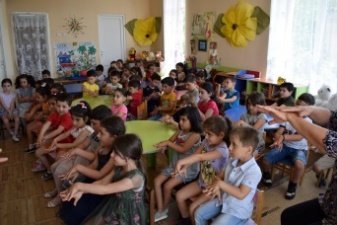
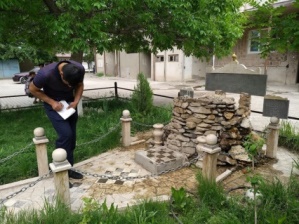
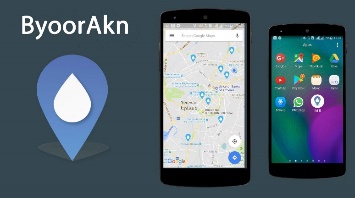
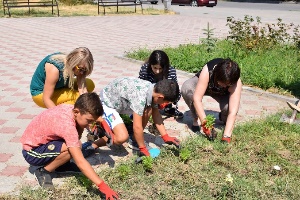
- Another group of young Citizen Scientists proposed to solve the problem of garbage accumulated in irrigation canals by installing waste picker system. For this purpose, the group designed and installed special waste picker net (metal and two nylon nets up to 3-4 m in length), which catches domestic waste, particularly plastic bottles from irrigation channel in Pokr Vedi community.
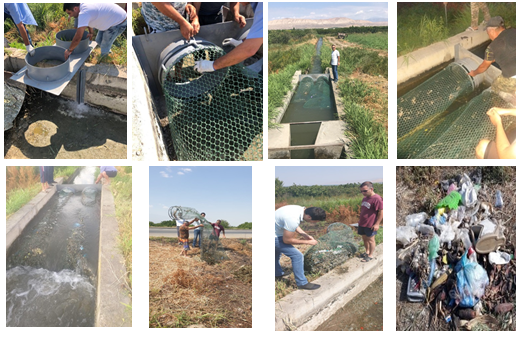
- The inefficient use of water resources, incomplete databases, lack of monitoring of the irrigation water usage , and the water-metering technical problems provoked this group of “citizen scientists” to think of making the whole system “smart.” Thus, they installed a water meter on the head of the plot, the data of which will be inserted into a database through “smart” technology and become available on the mobile phone of the water user. As a result, the water user will pay for the actually spent for irrigation volume of water. All the procured equipment will become the property of the water users and will be maintained by them.
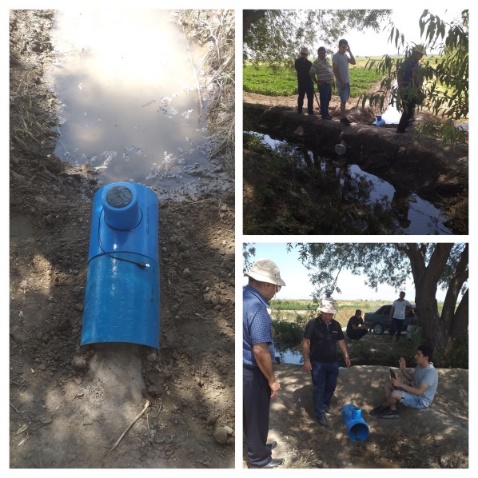
- Concerned with the problem of efficient irrigation water management in Ararat Valley, the young activists from Gyumri developed a website that would allow water users to independently, without the interference of the operator, make an electronic calculation and respective payment for the demand and actually spent water volume. The website (http://armavirwua.am /) allows to participate in the decision-making process, be informed on decisions and other documents produced by the WUAs, submit online applications, track the applications process and ensure feedback.
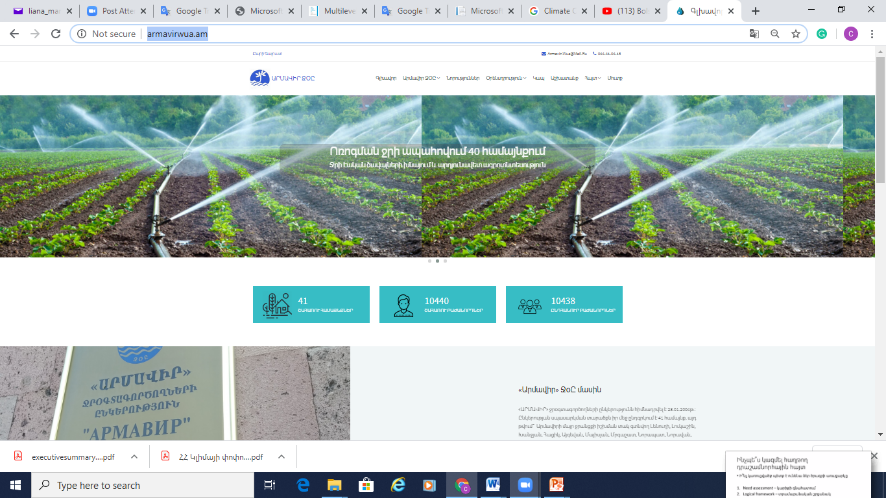
Main results achieved
Within the three years of its implementation the PURE-Water Project addressed a number of issues that the rural life in the Ararat Valley is facing in terms of utilization of scarce water resources, their effective and transparent management.
- As a result of more than sixty trainings and workshops conducted with the target communities’ representatives, including heads of communities, active youth and women, the Project managed to foster their behavioral change, be informed and participate actively in community water problems and in day-to-day solving of them..
- The Project especially highlighted the involvement of teachers as in the long-term perspective, they are the bearers of the knowledge and through them the water-related knowledge will be transferred from generation to generation, ensuring the continuity of the participatory mechanisms provided by the Project.
- The participation of schoolchildren in the workshops, study tours and Project other activities have allowed to test the interest of younger generation in water solving problems on community level, as well as to activate this process in community schools.
- The Water monitoring simple kits provided to schools will ensure the continuous monitoring of the water quality and quantity by the schoolchildren and voicing of the detected incompliances in the water standards to the respective authorities.
- The monitoring mechanisms and tools provided also through the public participatory budgeting activities, encouraged local self-government and inhabitants to participate in the decision-making process related to expenses for drinking and irrigation water supply in their budgets.
- The monitoring activities were complimented with a) the total six monitoring small-grants projects, which conducted a professional study of 8 communities’ broader water issues, the majority of which in the form of reports were submitted to the respective water responsible agencies for their consideration;
- Five advocacy projects, which raised the already existing problems of the water sector at the national level, seeking for legal reforms, or at least the proper application of existing regulations.
- Four innovative projects by “citizen scientists”, proposed simplified technological water-saving solutions, which will further ease the management and effective utilization of the communities’ water resources. The latter served as pilot projects that could also be replicated in other communities of Armenia, thus contributing to the fulfillment of the broader community needs.
- Provision of special electronic tools and instruments to the public for ensuring their active participation. Among them phone survey instrument, has provided an opportunity to the community heads and officers to have public opinion and solve the residents’ problems through simplified questionnaire, which contained not only water issues but also other statistical necessary data to municipality day to day work.
- MMIS transparency (although a piloting in Vedi) portal has allowed to independently submit residents’ complaints to the respective state authorities and private agencies, ensuring their feedback and effective solution of the raised problems.
- Online platform provided for submission of water use permit application simplified this process both for residents and for state authorities (RA Ministry of Ecology, Water Resources Management Agency)
